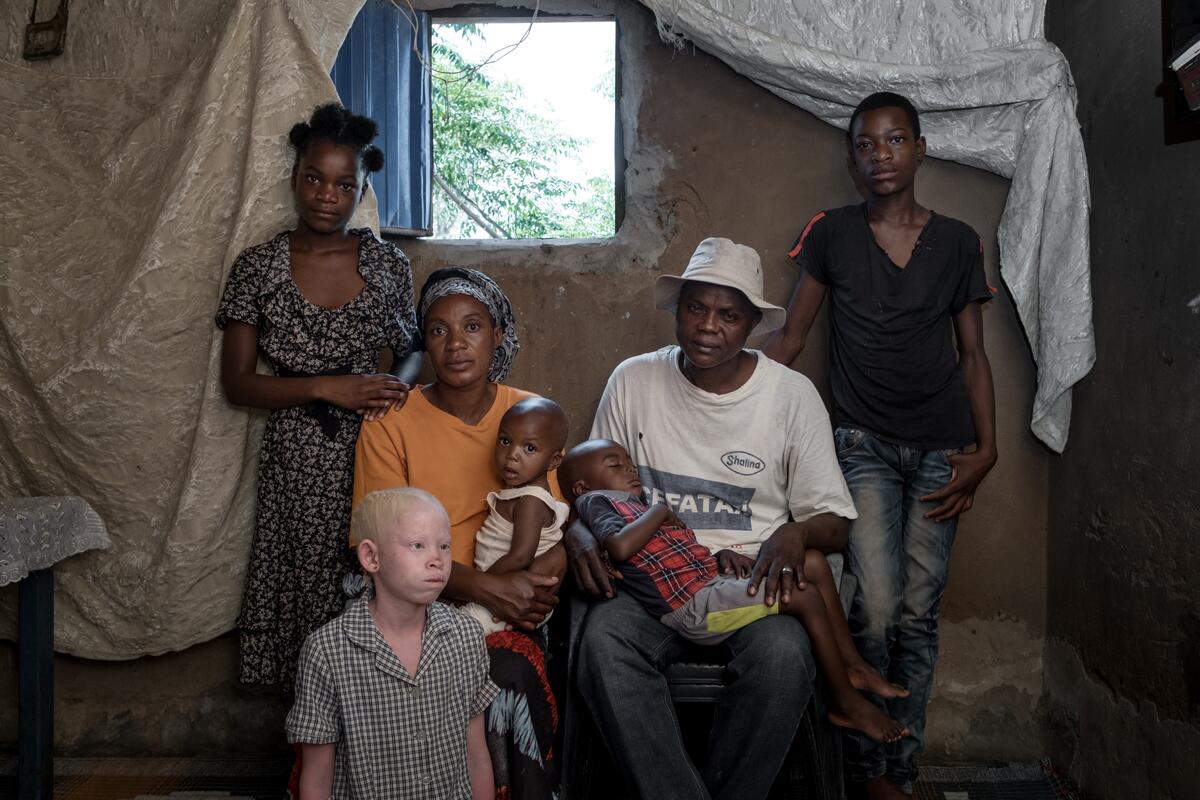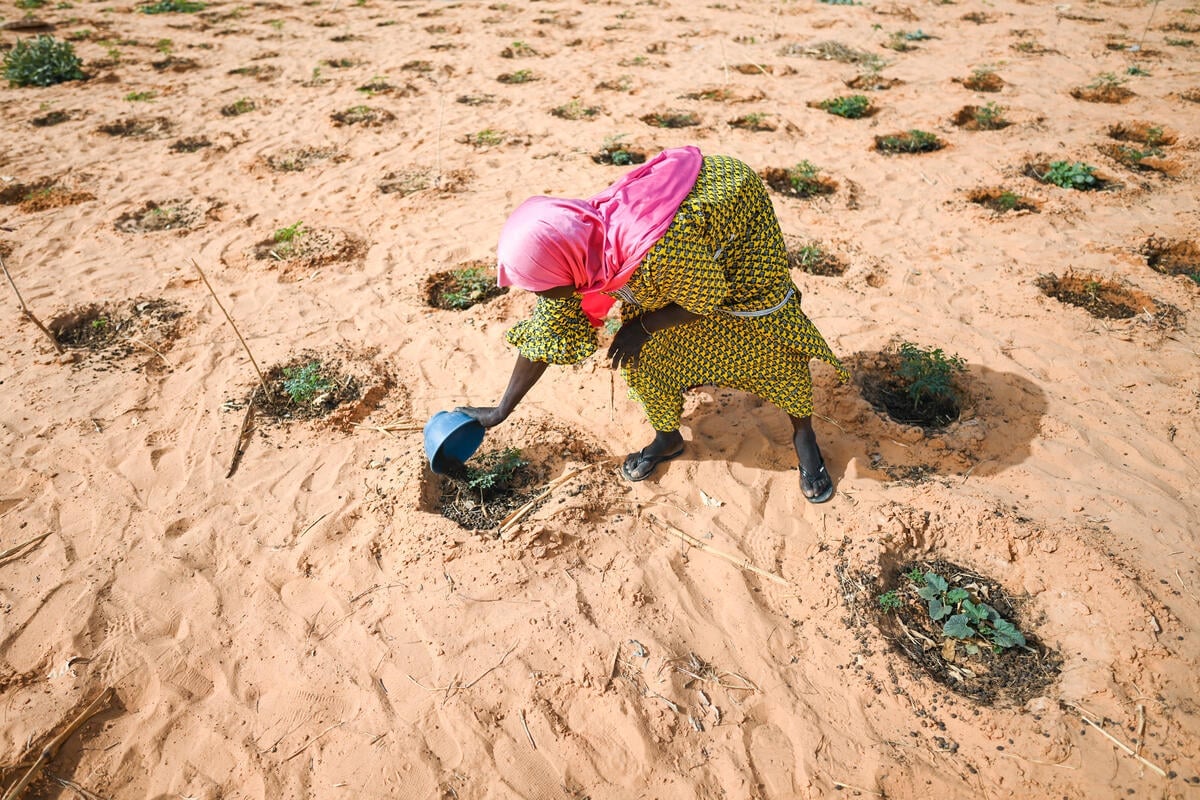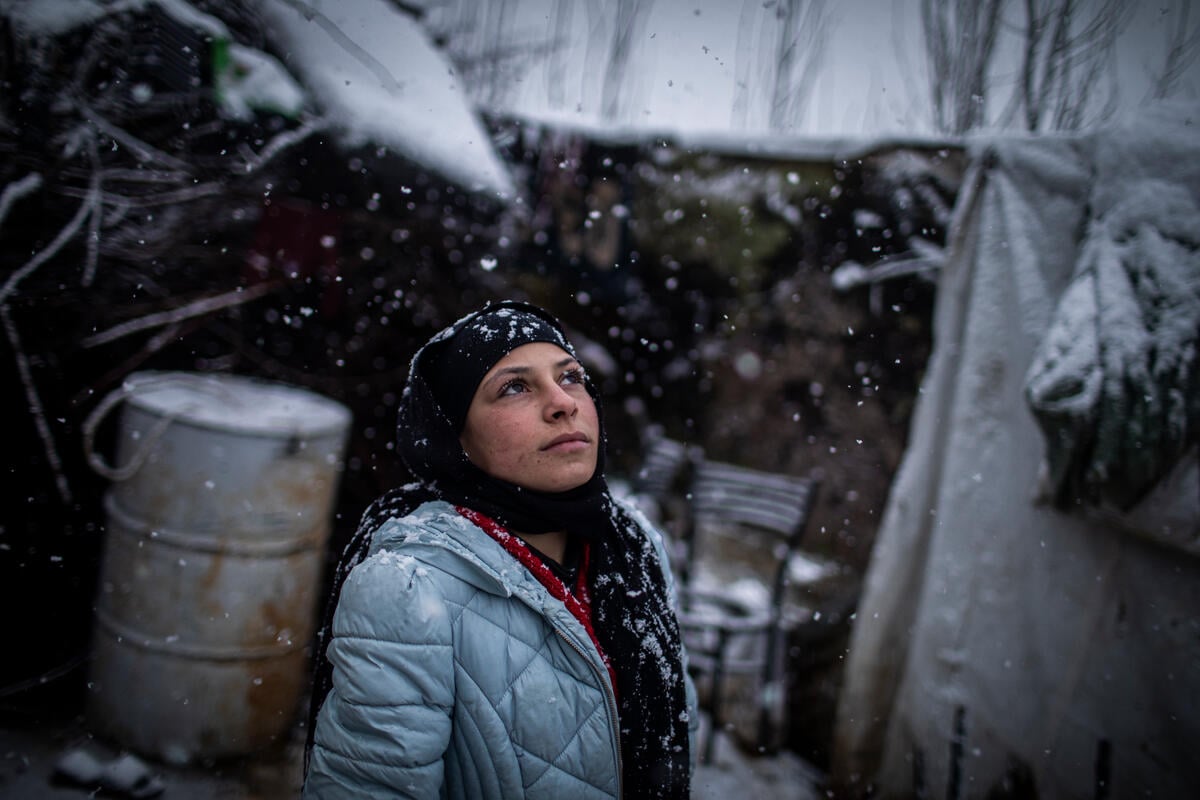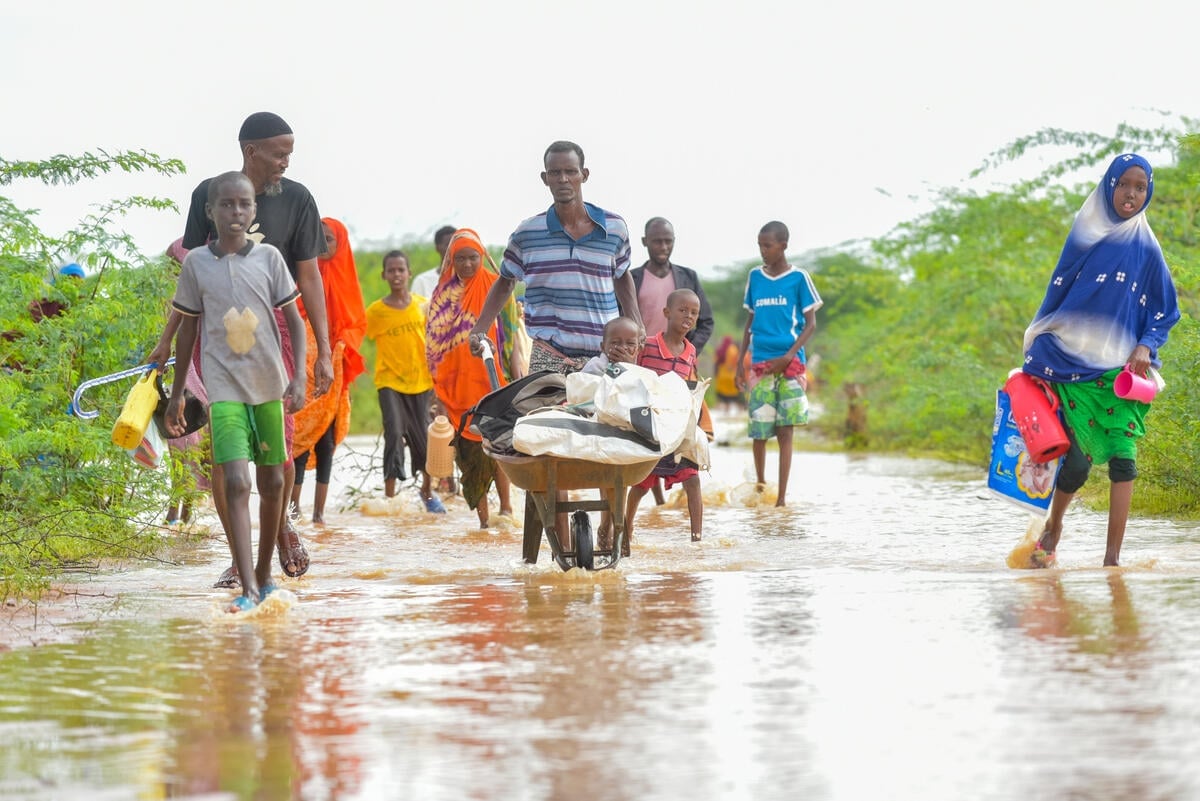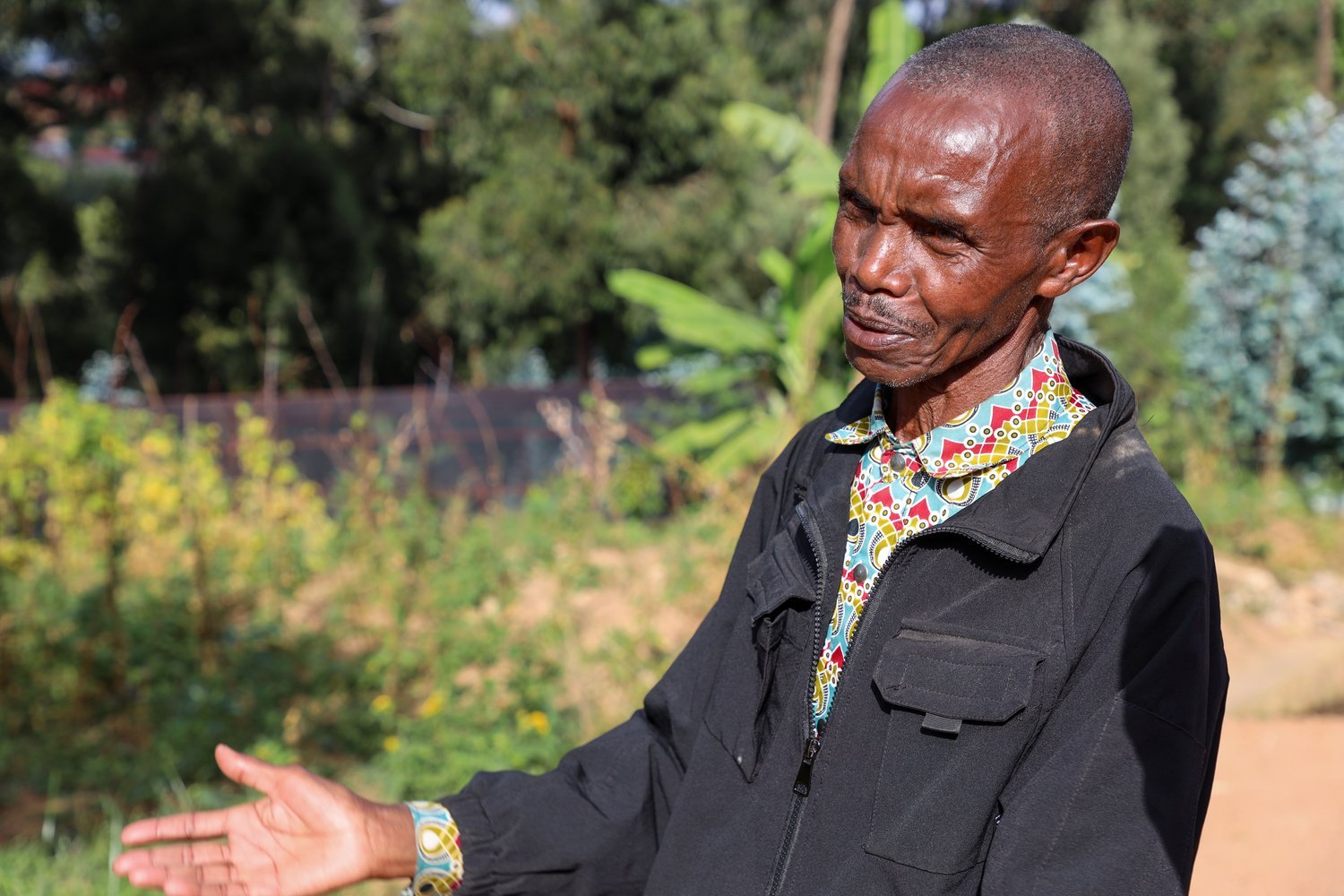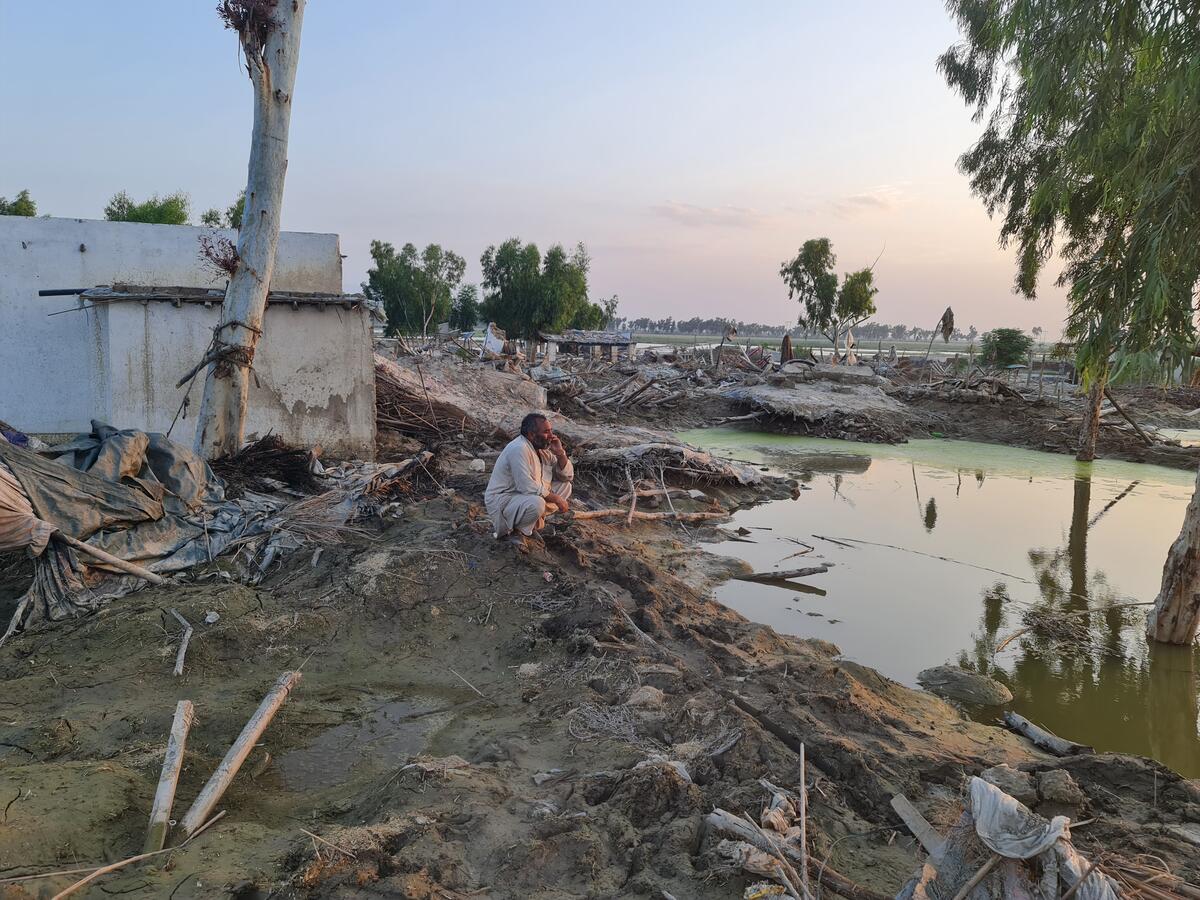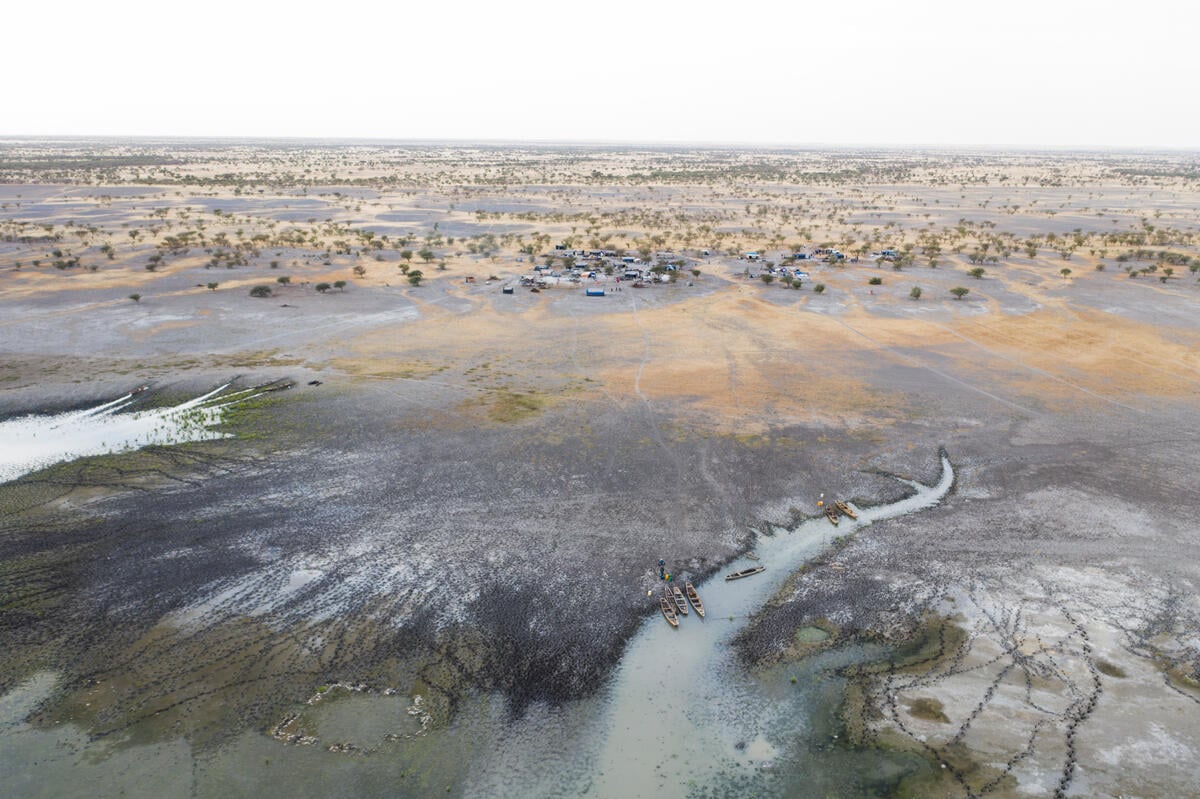Warming climate threatens livelihoods of Malian refugees and Mauritanians
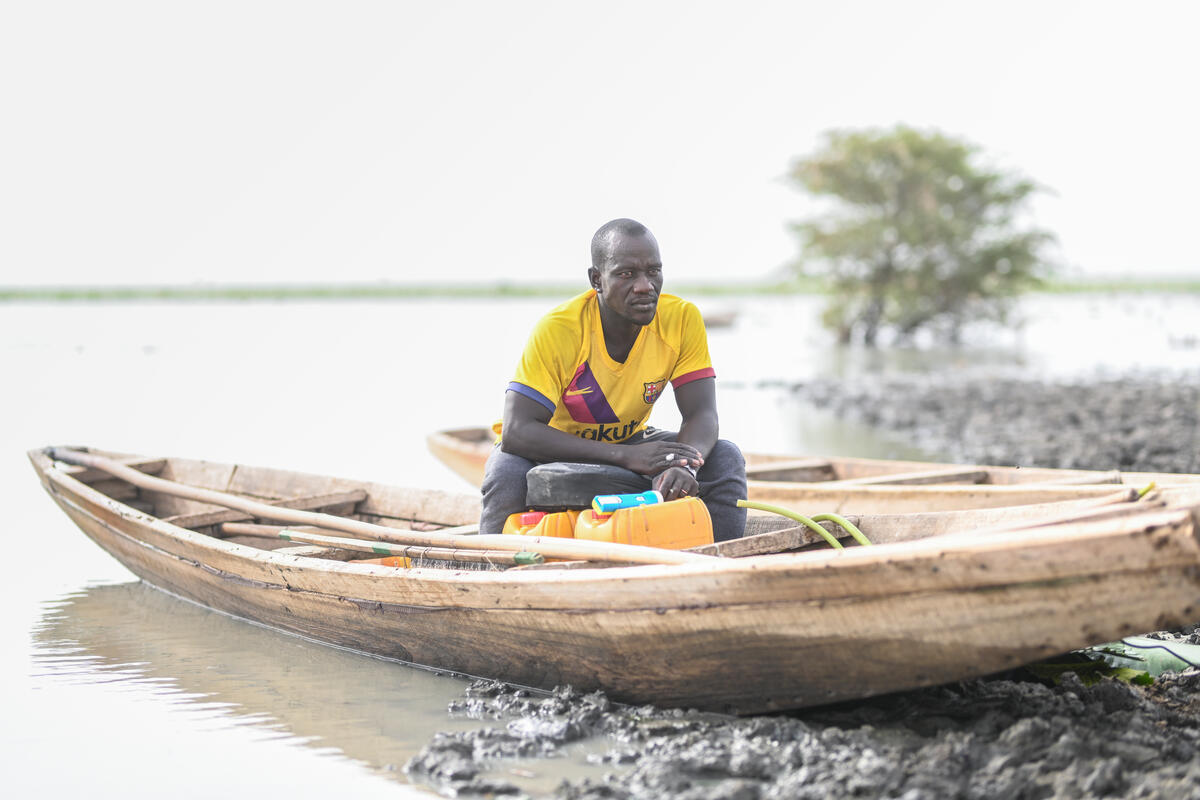
Warming climate threatens livelihoods of Malian refugees and Mauritanians
Yahya Koronio Kona solemnly steers his dugout canoe through the vast swathes of water hyacinth that cover the surface of Lake Mahmouda in southern Mauritania. As he comes ashore, the Malian fisherman looks with disappointment at the day’s catch – some 20 mudfish squirming on the floor of his canoe.
“I waited two days and this is all I got. It’s barely enough to sell at the market,” says the 42-year-old, poking at the fish.
While he hoped for more, he is not surprised by the small catch. He blames it on the delayed rains and the increasingly hot temperatures, which regularly rise to 50°C.
Yahya first felt the effect of climate change on his livelihood in 2013 after Mali’s Lake Faguibine, the closest lake to his hometown of Goundam, finally dried up after it started to evaporate in the 1970s due to prolonged periods of drought. He moved to another town, where tensions arose between the local communities and the newcomers as the demand for limited resources in a rapidly deteriorating environment became unsustainable.
“I’m worried the lake will dry out soon. I don’t know what we will do.”
Armed attacks and lack of protection in the area forced him to move further south but the situation there was too volatile and he eventually crossed into Mauritania in 2019, settling by the shores of the lake.
“Fishing is all I know. It is what I was taught since I was a young boy,” said the father of four.
Thousands of Malians have abandoned their land and homes as lakes such as Faguibine, Kamangou and Gouber have dried up, leaving them unable to farm, fish or keep livestock. Combined with ongoing insecurity in the country – and the larger Sahel region – thousands of Malians have crossed the border into Mauritania and other neighbouring countries, including Niger and Burkina Faso.
While Yahya had hoped for better prospects on the Mauritanian side, he now faces a worryingly similar situation: Lake Mahmouda is steadily drying up and shrinking due to an increasingly harsh climate.
About 90 per cent of Mauritania’s territory lies in the Sahara Desert, making it particularly vulnerable to the effects of desertification caused by lengthy periods of drought and decreasing rainfall. This year’s rainy season, which normally begins in June and goes on until September, brought very little rain.
“I’m worried the lake will dry out if it doesn’t rain soon. I don’t know what we will do,” said Yahya.
His fellow Malians – about 1,200 live by the lake – agree that things will only get worse as more of their compatriots arrive and pressure grows on already scarce resources, which they share with the mostly nomadic Mauritanian communities that keep large herds of livestock near the lake.
Yahafzou Ould Haiballa, 57, a Mauritanian herder from the nearby village of Suleyman, often passes through the fishing village as he takes his cattle to pasture and drink from the lake. Born and raised here, he has seen the population grow, especially since 2015 when the first group of Malian fishermen arrived.
“I have lived here all my life and I have never seen the situation this bad,” he said.
He adds that the local community has had cordial relations with the Malians who have arrived and gradually settled by the lake’s shores over the years.
“We have lived with the Malians for a long time and have become like brothers,” he said. “I don’t usually eat fish because it is not our culture, but I have since tried to!”
Like Yahya, Yahafzou worries about the changing climate.
“Things will get worse and this lake might disappear if the rains don’t come,” he said.
As the climate crisis worsens and more Malians cross into the country, the need to secure their livelihoods for their wellbeing and their continued stay in the country in a dignified and sustainable manner is critical.
“Time is running out and we need to act now.”
UNHCR, the UN Refugee Agency, is working with the local authorities to address their predicament and that of their hosts. It plans to begin registration of Malian arrivals in this area and facilitate access to basic services, such as health, education and protection for the most vulnerable, many of whom are women and children.
Around 80 per cent of the world’s displaced people originate from countries on the frontlines of the climate emergency. As the UN Climate Change Conference (COP26) gets underway in Glasgow, UNHCR is warning that in places like Mauritania and around the world, the human cost of the climate crisis is already being felt, driving displacement and making life harder for those already forced to flee.
Ahead of COP26, UNHCR’s Special Advisor on Climate Action, Andrew Harper, went to Mauritania and visited Lake Mahmouda and Mbera refugee camp, located some 60 kilometers from the border with Mali.
During his visit, refugees, Mauritanians and local authorities told him how climate change has transformed this region, pushing already vulnerable communities into poverty and food insecurity.
“The people living around the lake have not only fled conflict in their country but also a climate that is becoming increasingly hostile in its impact – where the lakes in which they used to fish have now disappeared,” he said. “They know better than anyone that time is running out, and we need to act now.”
Harper called on world leaders to help communities and governments facing the worst impacts of climate change who have contributed the least to the crisis and have the least capacity to adapt, or risk further climate-driven conflict and displacement.
“I urge the more developed states to find solutions and much needed funds for governments and communities being unfairly impacted by the climate crisis,” he said, adding, “We need to also invest in peace and not wait for conflict to break out.”
He also appealed for concerted efforts to make rapid progress on the Great Green WallLink is external – a reforestation initiative that aims to grow an 8,000-kilometre-long barrier to combat environmental degradation and drought in the Sahel – which will also pass through the Lake Mahmouda area.
“This project needs to be activated now, there is no time to waste,” he said. “We need to build the capacities in the respective ministries and engage with the communities in which the Great Green Wall will pass through.”
“As long as we have peace and food, we are happy.”
By scaling up investments in areas such as tree nurseries and renewable energy use, populations that currently derive income from the destruction of the fragile tree cover will have a ‘more dignified and sustainable future due to investments in the preservation of fragile environments that are under threat,’ Harper added.
For a moment, Yahya’s small fishing village comes alive as crates of fish from the day’s catch are loaded onto a small truck that will make its way to the local markets and possibly, across the border to Mali. Whatever proceeds are made will be a source of short-term relief for the villagers.
Yahya misses his life back home where before the drought, he had a steady stream of income from fishing, his small farm, and, most importantly, peace.
For now, he just wants to focus on building a more certain future.
“I pray that it rains soon so we can continue fishing and take care of our families,” he said. “As long as we have peace and food, we are happy.”
To donate to UNHCR's climate action, please click here.









